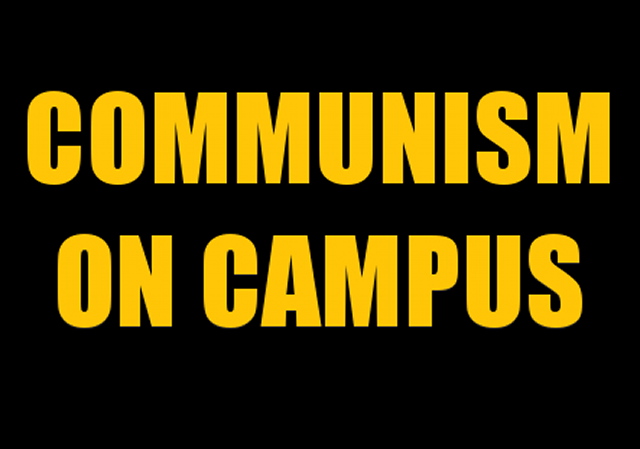Survey Finds Communist Manifesto Among Top Ten Texts Assigned at Ivy League and Public Colleges
“it’s not crazy that some teachers would assign ‘The Communist Manifesto,’ but it’s strange that so many would”

This makes perfect sense. Higher education has become a an institution ruled by the radical left which poisons the minds of our young people.
The College Fix reports:
‘Communist Manifesto’ among Top 10 texts assigned at Ivy League and top public colleges, survey finds
A new survey found that “The Communist Manifesto” is among the Top 10 most assigned books in Ivy League institutions and the top-ranked public colleges in the nation.
The book, written by Karl Marx in 1848, was ranked as the top-fourth text assigned at public colleges and universities, and the seventh-most assigned at Ivy League institutions.
The other two reading assignments that also overlapped on the top 10 lists are “The Elements of Style” and the “Tragedy of the Commons.”
Results were published by DegreeQuery, a Utah-based company that numerically rates and ranks college degrees, career paths and universities, according to its website.
The company used the Open Syllabus Project database to determine its results. The online database provides access to the syllabi of over 2,500 U.S. colleges.
“To determine the most-popular books at Ivy League schools and public schools, we aggregated the ranks of the top 100 books at each Ivy League school and the top 8 schools on the list of the 2021 Top Public Schools of the U.S. News & World Report,” the company stated.
Asked to weigh in on the popularity of “The Communist Manifesto,” David Randall, director of research for the National Association of Scholars, said there’s some justification for teaching it in a political science or history course.
But the fact that it’s showing up among the Top 10 of the most assigned books on both lists suggests it’s being taught in a much wider swath of subjects, Randall said via email to The College Fix.
“In general, it seems to be assigned more than you’d expect,” Randall said. “…Again, it’s not crazy that some teachers would assign ‘The Communist Manifesto,’ but it’s strange that so many would, while so many other notable texts fall by the wayside.”
 DONATE
DONATE
Donations tax deductible
to the full extent allowed by law.








Comments
It’s not just that they assign the Communist Manifesto that should be noted. I remember it being assigned in a sociology class. In the textbook, Karl Marx was described as a great sociologist. (It would be more accurate to describe him as a crackpot economist)
Nowhere was the incredible destructiveness of his ideas mentioned.
Yes, this is the key problem. There is no critical and objective analysis, no weighing of pros and cons, no use of the text to weigh the evidence, and no learning the lessons of the past to apply to our future.
It’s like pot propaganda…all of the good is sold, with none of the bad.
I’m actually for MJ legalization for an economic boost, but it’s ridiculous how many people have deemed it a miracle plant based on spotty evidence and a strong bias due to fiscal and/or desire-based agendas. The same problem is seen with the study of Marx as some kind of sagely god figure.
Well of course. It’s the catechism of their new religion.
Surprised that _Rules for Radicals_ didn’t make the list.
So how many times was Mein Kampf assigned? Just wondering.
That’s an interesting question. I’ve been in higher education since ’85 and I’ve never seen or heard of it on a course syllabus. But I’d be curious to know as well.
Yes, the Communist Manifesto is an assigned text in a lot of Western Civ courses, among others. It’s often read alongside other seminal texts — Plato, Dante, Descartes, Goethe, Nietzsche, and Freud, for instance. If it’s offered and read in the spirit of critical inquiry — what does this book mean, why is it influential, how does it read against the other texts in the course, how do we evaluate it — that’s fine with me. If it’s taught as a sacred text, then that’s a problem.